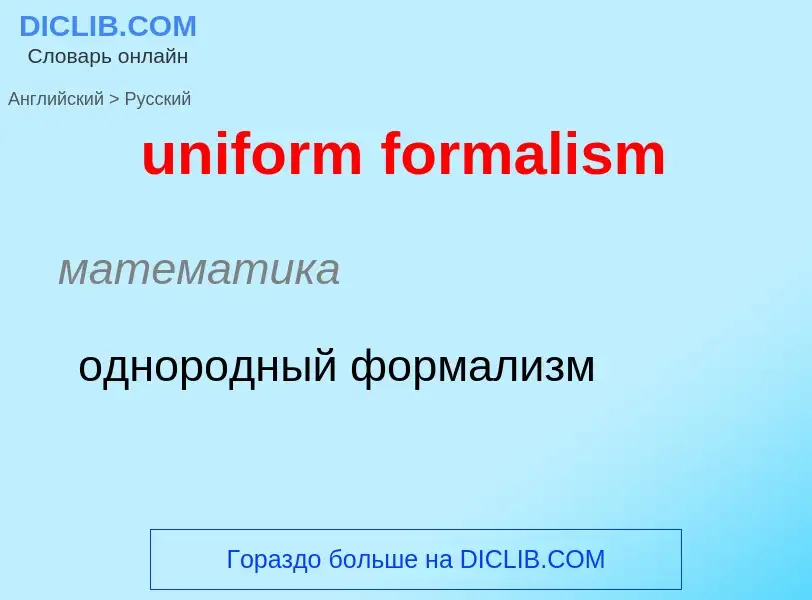Vertaling en analyse van woorden door kunstmatige intelligentie ChatGPT
Op deze pagina kunt u een gedetailleerde analyse krijgen van een woord of zin, geproduceerd met behulp van de beste kunstmatige intelligentietechnologie tot nu toe:
- hoe het woord wordt gebruikt
- gebruiksfrequentie
- het wordt vaker gebruikt in mondelinge of schriftelijke toespraken
- opties voor woordvertaling
- Gebruiksvoorbeelden (meerdere zinnen met vertaling)
- etymologie
uniform formalism - vertaling naar russisch
математика
однородный формализм
математика
формальный анализ
Definitie
Wikipedia
Legal formalism is both a descriptive theory and a normative theory of how judges should decide cases. In its descriptive sense, formalists maintain that judges reach their decisions by applying uncontroversial principles to the facts; formalists believe that there is an underlying logic to the many legal principles that may be applied in different cases. These principles, they claim, are straightforward and can be readily discovered by anyone with some legal expertise. Supreme Court Justice Oliver Wendell Holmes Jr., by contrast, believed that "The life of the law has not been logic: it has been experience". The formalist era is generally viewed as having existed from the 1870s to the 1920s, but some scholars deny that legal formalism ever existed in practice.
The ultimate goal of legal formalism would be to describe the underlying principles in a single and determinate system that could be applied mechanically—from which the term "mechanical jurisprudence" comes. The antithesis of formalism is legal realism, which has been said to be "[p]erhaps the most pervasive and accepted theory of how judges arrive at legal decisions."
This descriptive conception of "legal formalism" can be extended to a normative theory, which holds that judges should decide cases by the application of uncontroversial principles to the facts; "sound legal decisions can be justified as the conclusions of valid deductive syllogisms."

